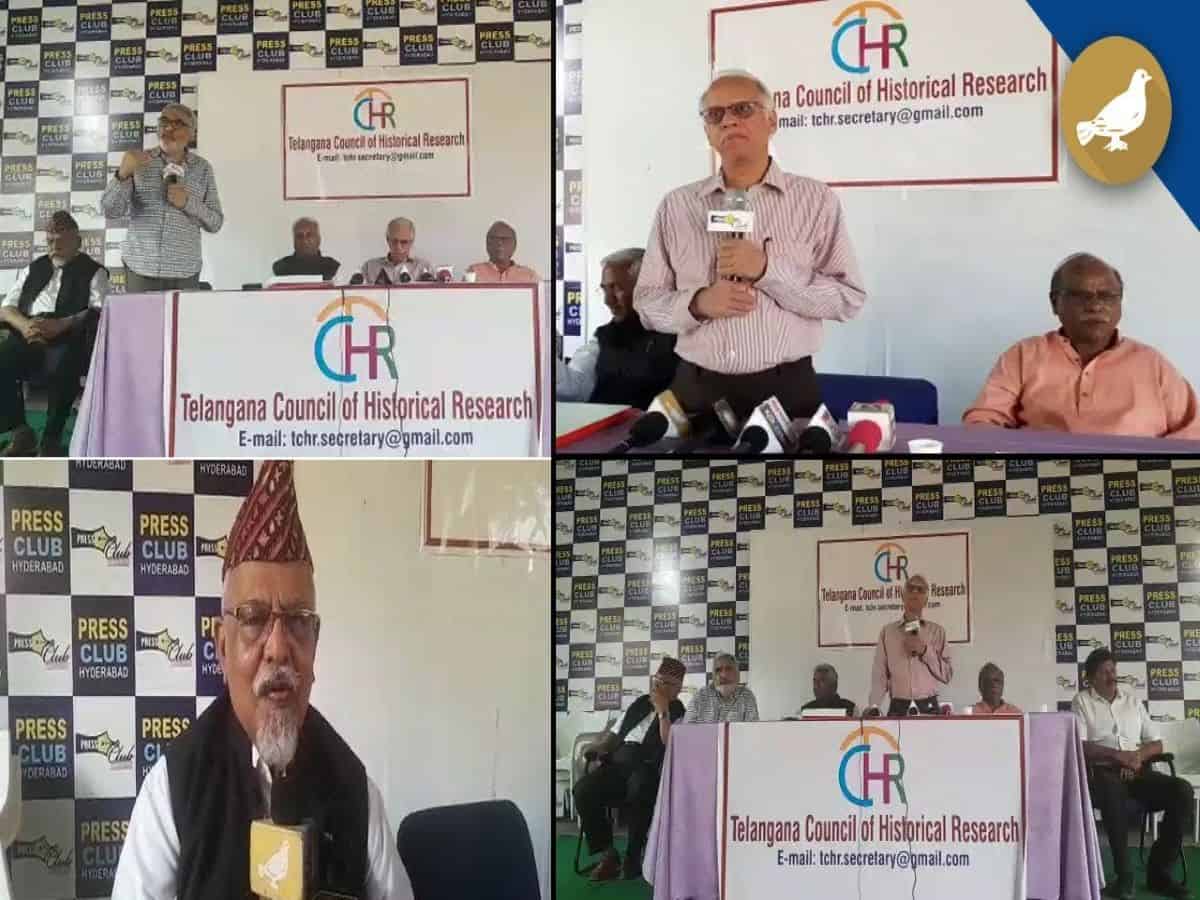
Hyderabad: A seminar is going to be organized by the Telangana Council of Historical Research (TCHR) and Siasat Daily in the first week of January to re-assess and re-interpret the history of erstwhile Hyderabad State on the basis of authentic and original historical source materials and data available in the archives.
The need for the seminar arises as in recent years, there have been conflicting and contradictory interpretations regarding the nature and the characteristic features of the Asaf Jahi rule. In particular, the period of the last two Nizams i.e., the sixth and seventh has been subjected to critical analysis.
One group of scholars present a negative picture of the last phase of the Asaf Jahi rule by depicting the negative features like autocratic polity, religious conflicts and feudal domination while another set of scholars tended to paint a rosy picture of positive developments like industrialization, urbanization, growth of education and so on.
Agenda of seminar
The proposed seminar will examine the long-term historical process of the emergence of the Asaf Jahi dynasty and the impact of its rule in Telangana.
It also seeks to critically assess the contribution of the rules during pre and post-Salar Jung reforms.
The reign of second ruler Nizam Ali Khan, 1762-1801 CE was significant as it witnessed the imposition of British Paramountcy of Hyderabad State.
The period between 1853 and 1948 is crucial for understanding the contours of the birth of modern Telangana. The year 1853 signified the beginning of Salar Jung’s reforms which led to fundamental changes in the administrative and socio-economic-cultural fields in the Nizam’s Dominions.
Recent press conference
In a recently held press conference, the Managing Editor of Siasat Daily said that in the present days, history is being rewritten for personal benefit. He also said that civil society should be given the responsibility of writing history.
He highlighted the fact that the history department exists only in 5-6 universities in Telangana.
Speaking at the press conference, TCHR secretary T Vivek said that a two-day seminar on the history of Telangana will be organized in the first week of January.
Others who were present in the press conference include the treasurer of TCHR Capt (Dr.) L. Panduranga Reddy, vice president Ziauddin Nayyar, Jt. secretary P. Gangadhar, EC member G. Vishnu Swaroop Reddy, and Professor Adappa.
Asaf Jahi kingdom
In the Deccan, the Asaf Jahi kingdom came into existence in 1724 CE under Mir Qamaruddin Khan Chin Qilich Khan, popularly known by his title Nizam-ul-Mulk Asaf Jah.
Present day Telangana was a part of the erstwhile Hyderabad State. Seven Nizams ruled over it for more than two centuries until 1948. It was a unique State which inherited the composite culture of the Deccan Region.
Nizam’s State was divided into three Linguistic regions, viz., Telangana (Telugu), Marathwada (Marathi), and Karnataka (Kannada). It was a multi-lingual, multi-ethnic, multi-cultural, and multi-religious State.
According to the census of 1941, 84% of the population was Hindus, 11% were Muslims and the rest belonged to other religions like Jains, Sikhs, Parsis, etc.
Among the linguistic groups, Telugus constituted about 50%, Marathis 25%, Kannadigas 11%, and the rest belonged to other linguistic groups such as Bengalis, Tamils, Rajasthanis, etc.
